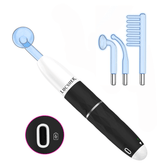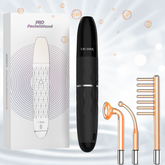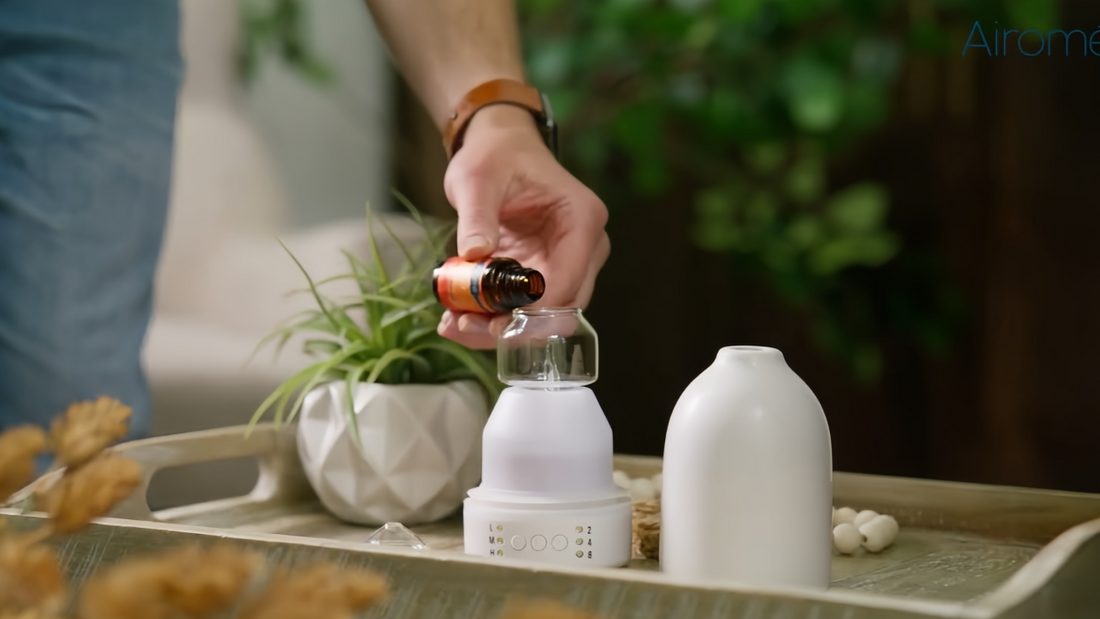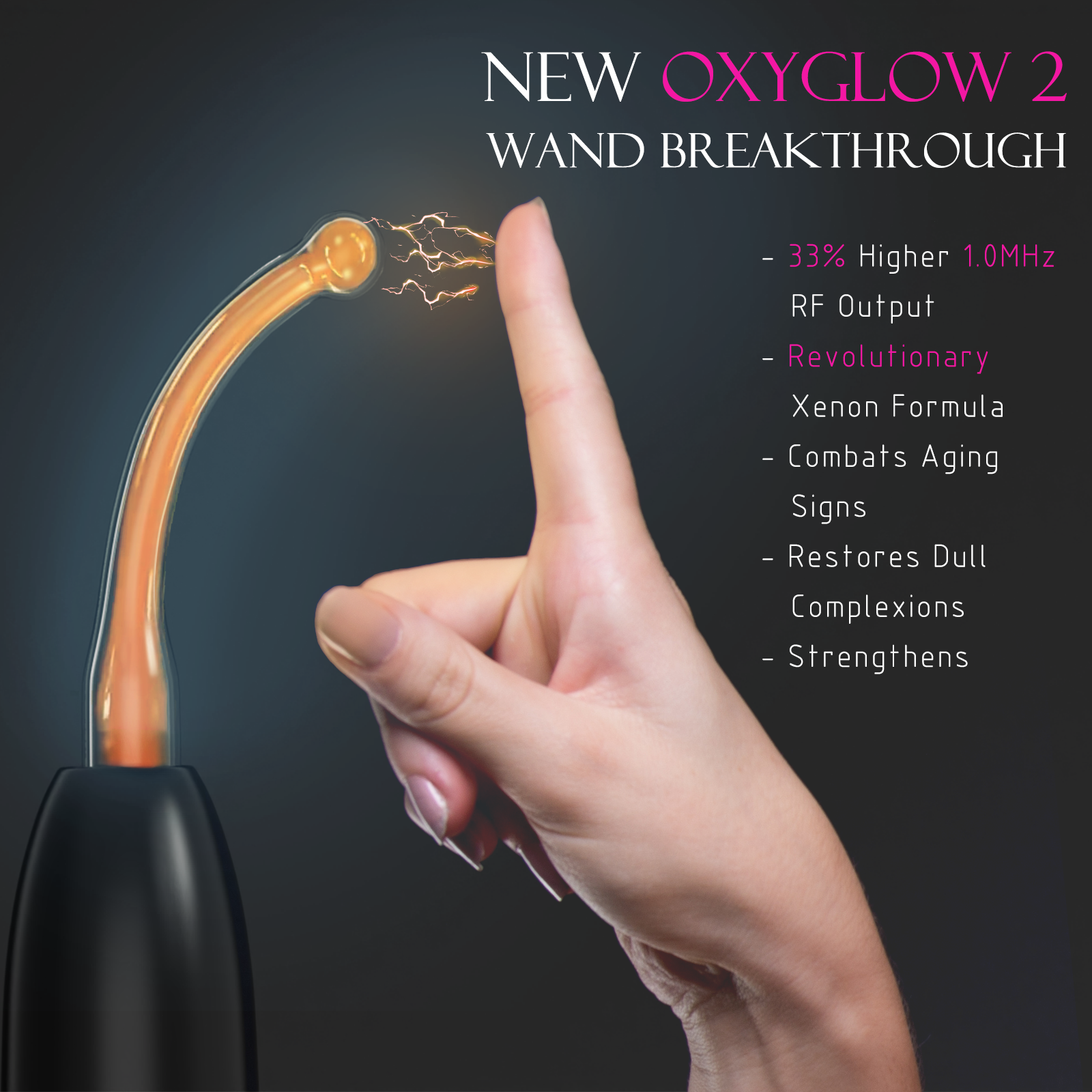In recent years, the popularity of aromatherapy diffusers has skyrocketed, and for good reason. Beyond their ability to fill our spaces with pleasant scents, these devices offer a wealth of scientifically-backed benefits that can significantly improve our health and well-being. As we delve into the fascinating world of aromatherapy, we’ll explore how these unassuming devices can be powerful allies in our quest for better health.
The Growing Need for Natural Wellness Solutions
In today’s fast-paced world, many of us find ourselves grappling with a range of health and wellness concerns:
- Stress and Anxiety: The constant demands of modern life can leave us feeling overwhelmed and on edge.
- Sleep Disorders: Insomnia and poor sleep quality are becoming increasingly common, affecting our overall health and productivity.
- Mood Fluctuations: Many people struggle with low energy levels and mood swings that impact their daily lives.
Amidst these challenges, aromatherapy diffusers emerge as a natural and evidence-based approach to addressing these concerns. By harnessing the power of essential oils, these devices offer a non-invasive way to support our physical and mental well-being.
Understanding the Science of Aromatherapy
To truly appreciate the benefits of aromatherapy diffusers, we need to explore the science behind this ancient practice.
The Olfactory System and the Brain
Our sense of smell is uniquely powerful, with a direct connection to the limbic system in our brain. This area is responsible for controlling emotions, memory, and behavior. When we inhale essential oil molecules, they trigger a cascade of neurological and physiological responses that can profoundly impact our state of mind and bodily functions.
The Power of Essential Oils
Essential oils are concentrated plant extracts that contain a variety of active compounds with therapeutic properties. Each oil has a unique chemical composition that contributes to its specific benefits:
- Lavender: Known for its calming and relaxing effects
- Peppermint: Invigorating and refreshing, often used to boost energy and focus
- Eucalyptus: Helpful for respiratory health and mental clarity
- Citrus oils: Uplifting and mood-enhancing
Scientific Research on Aromatherapy
Numerous studies have investigated the effects of aromatherapy on various aspects of health and well-being:
-
Stress and Anxiety: Research has shown that lavender and chamomile can significantly reduce stress and anxiety levels. A 2012 study published in the Journal of Alternative and Complementary Medicine found that inhaling lavender oil reduced anxiety in dental patients.
-
Sleep Quality: Lavender and valerian have been found to improve sleep duration and quality. A 2015 study in the Journal of Alternative and Complementary Medicine reported that lavender oil inhalation improved sleep quality in college students with self-reported sleep issues.
-
Mood and Energy: Citrus oils and peppermint have shown promise in boosting mood and energy levels. A 2008 study in the International Journal of Neuroscience found that yuzu oil reduced negative emotional stress in human subjects.
-
Respiratory Health: Eucalyptus and tea tree oil have been studied for their potential to ease respiratory symptoms. A 2010 study in Alternative Medicine Review found that a blend of essential oils including eucalyptus was effective in treating upper respiratory tract infections.
How Aromatherapy Diffusers Work
Aromatherapy diffusers are designed to disperse essential oil molecules into the air, allowing us to inhale and absorb them into our bodies. There are several types of diffusers, each with its own method of operation:
- Ultrasonic Diffusers: Use water and ultrasonic vibrations to create a fine mist of essential oil particles.
- Nebulizing Diffusers: Break down essential oils into tiny particles without using heat or water.
- Evaporative Diffusers: Use a fan to blow air through a pad or filter containing essential oils.
- Heat Diffusers: Apply gentle heat to essential oils to encourage evaporation.
The effectiveness of essential oil delivery can vary depending on the method of diffusion. Nebulizing diffusers are often considered the most potent, as they disperse the oils in their purest form.
Absorption and Bioavailability
When we inhale essential oil molecules, they can be absorbed through our nasal passages and lungs, entering the bloodstream and reaching various parts of the body. The bioavailability of essential oils depends on factors such as:
- Their chemical composition
- The method of diffusion
- Individual physiology
This ability to enter our system through inhalation is what makes aromatherapy diffusers so effective in delivering the therapeutic benefits of essential oils.
Specific Benefits of Aromatherapy Diffusers
Now that we understand the science behind aromatherapy, let’s explore some of the specific benefits that aromatherapy diffusers can offer.
Stress and Anxiety Reduction
In our high-stress world, finding effective ways to relax and unwind is crucial. Aromatherapy diffusers can help by dispersing calming essential oils like lavender, chamomile, and bergamot. These oils have been shown to reduce stress hormones and promote a sense of calm.
A 2009 study published in the journal Holistic Nursing Practice found that lavender essential oil inhalation decreased stress and anxiety levels in intensive care unit patients.
Improved Sleep Quality
For those struggling with sleep issues, aromatherapy diffusers can be a game-changer. Essential oils like lavender, valerian, and Roman chamomile have been shown to promote relaxation and induce sleep.
A 2017 study in the British Journal of General Practice reported that lavender oil aromatherapy improved sleep quality in adults with mild insomnia.
Mood Enhancement and Energy Boost
When you need a pick-me-up, citrus oils like lemon, orange, and grapefruit can help improve mood and energy levels. Peppermint oil is also known for its invigorating effects.
A 2013 study in the journal Evidence-Based Complementary and Alternative Medicine found that citrus and lavender oils were effective in reducing stress and improving the mood of healthy volunteers.
Respiratory Support
For those dealing with congestion or respiratory discomfort, essential oils like eucalyptus, peppermint, and tea tree can provide relief. These oils have been shown to help clear congestion and soothe respiratory symptoms.
A 2011 study in the journal Evidence-Based Complementary and Alternative Medicine found that a blend of essential oils including eucalyptus and peppermint was effective in relieving upper respiratory tract infections.
Choosing the Right Essential Oils
To reap the full benefits of aromatherapy diffusers, it’s crucial to select high-quality essential oils and use them safely.
Safety and Quality
When shopping for essential oils, look for:
- Pure, therapeutic-grade oils
- Oils sourced from reputable companies
- Detailed information about the oil’s origin and extraction method
Avoid synthetic or adulterated oils, as these may not provide the same benefits and could potentially cause adverse reactions.
Essential Oil Blends
Creating custom blends can enhance the therapeutic effects of aromatherapy. Some popular combinations include:
- Lavender and chamomile for relaxation
- Peppermint and lemon for focus and energy
- Eucalyptus and tea tree for respiratory support
Experiment with different combinations to find what works best for you.
Dilution
It’s important to dilute essential oils before diffusing them, especially if you have sensitive individuals or pets in your home. A general guideline is to use 3-5 drops of essential oil per 100ml of water in your diffuser.
Conclusion
The science behind aromatherapy diffusers reveals their potential to significantly impact our health and well-being. From reducing stress and anxiety to improving sleep quality and boosting mood, these devices offer a natural and effective way to enhance our overall wellness.
As you explore the world of aromatherapy, remember that everyone’s experience may be different. Take the time to discover which essential oils and blends work best for you, and consider incorporating an aromatherapy diffuser into your daily routine. With consistent use, you may find that this simple addition to your home or workspace can have a profound effect on your physical and mental well-being.
Resources
For more information on aromatherapy and essential oils, check out these reputable resources:
- National Association for Holistic Aromatherapy
- PubMed Central - Aromatherapy Research
- Tisserand Institute
Frequently Asked Questions
Q: Are aromatherapy diffusers safe for everyone?
A: While generally safe, some individuals may be sensitive to certain essential oils. It’s always best to start with a small amount and observe any reactions. Pregnant women, young children, and those with certain health conditions should consult a healthcare provider before using aromatherapy diffusers.
Q: Can aromatherapy diffusers cause allergies?
A: Some people may be allergic to certain essential oils. If you experience any allergic reactions such as sneezing, rashes, or difficulty breathing, discontinue use and consult a healthcare provider.
Q: How often should I use an aromatherapy diffuser?
A: This can vary depending on the individual and the essential oils used. Generally, it’s recommended to use a diffuser for 30-60 minutes at a time, with breaks in between. Always follow the manufacturer’s instructions for your specific diffuser.
Q: What are the potential side effects of using an aromatherapy diffuser?
A: When used properly, side effects are rare. However, overuse or using undiluted essential oils may cause headaches, nausea, or skin irritation in some individuals. If you experience any adverse effects, stop using the diffuser and consult a healthcare provider.









